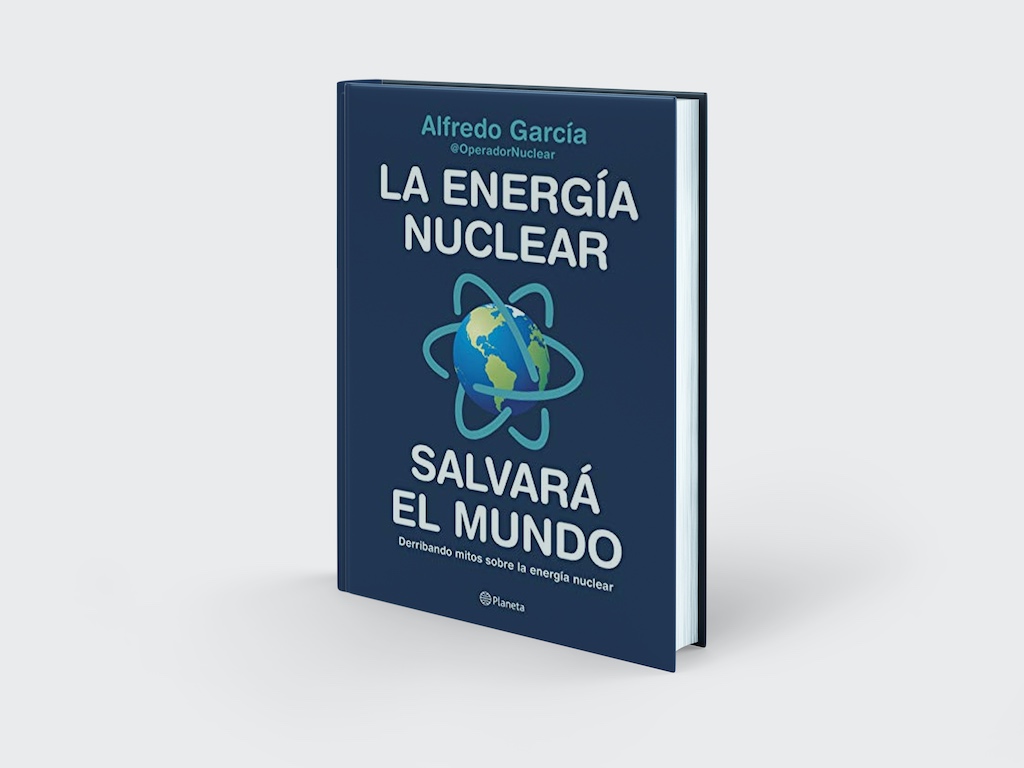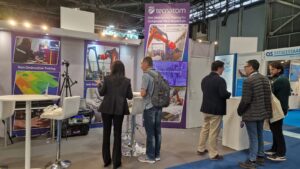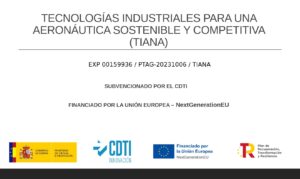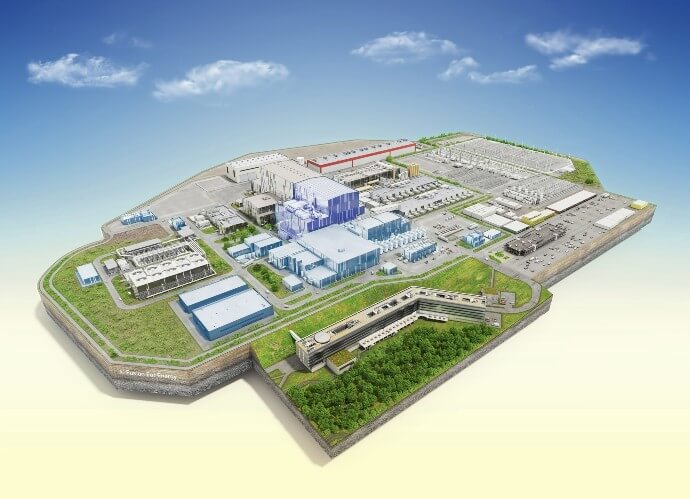Alfredo García Fernández, better known on the web as @OperadorNuclear, has just brought out a new book, “Nuclear energy will save the world”. After years of anonymity, we now know at last who he is, we love his book and, as at Tecnatom we are very curious, we have a pile of questions to ask him.
Our colleagues have subjected Alfredo to one of the most amusing interviews since his novel was published, a book in which he explains that nuclear operators are not like Homer Simpson (one only has to see him with his eternal smile), that a catastrophe like the one that occurred at Chernobyl could not happen in Spain and that nowadays we could not do away with nuclear power without increasing carbon dioxide emissions and atmospheric pollution.
-
If you had not been a nuclear power plant operator, what other profession would you have liked to work in?
I have always found it difficult to decide because I like so many things. I studied telecommunications engineering because I was told that it would allow me to explore multiple fields of science and technology, opening a door onto many different careers, and the fact is that it was good advice because it allowed me to access training for the posts of Reactor and Turbine Operator.
When I was a kid, I wanted to design cars and for a long time, before I started blogging, I worked semi-professionally creating advertisements, videos, short films and graphic designs.
-
What other post would you have liked to occupy at the plant and why?
I have worked as an Operator, Control Room Manager and Assistant Shift Chief, the post I occupy today. I don’t see myself in any other role, either in Maintenance or in a management position.
I like shift work and I believe that my Operator and Supervisor licences give me a broader and more multidisciplinary outlook at a nuclear power plant, something I don’t think you would get in other posts, however interesting they might be.
-
Was Instructor nuclear @fruf82 (our colleague Fran Ramírez) an instructor of @OperadorNuclear in real life?
Of course, Fran was one of my instructors, and not just another instructor but one of the best I have had the luck to encounter.
When we first contacted via Twitter, he didn’t know who I was, but I was enchanted to start collaborating with one of my references in the Spanish nuclear sector. Since then, Fran has become one of my greatest supports in the dissemination of information and I will never be able to thank him enough.
-
Could you sum up your feelings during your initial training at Tecnatom in a single sentence?
I have to really work at this because it’s worth the effort.
-
In view of the excellent work that you do in communication and teaching, do you ever fancy being an instructor or would you ever consider it?
I have always liked to explain what I learn, but what really excites me is the challenge of explaining difficult things in simple language to people who do not have a scientific basis or are not familiar with the issue.
That is one of the reasons that I enjoy blogging so much and am not attracted by the idea of being an instructor, a profession that, on the other hand, is absolutely necessary for our sector.
-
What is the fondest memory you have of your training at Tecnatom?
During a simulator session I telephoned one of the auxiliary operators and it was picked up by one of the instructors, who at that time was involved in practical sessions (I won’t reveal his name, but he is a historical figure at Tecnatom).
I asked him to perform a manoeuvre and hung up. A few minutes later I called another auxiliary operator and logically the same voice answered the phone. I said to him “you’ve got the same voice as the other auxiliary operator” and he answered, “that’s because it was my brother”.
-
What made you decide to throw off your anonymity?
Essentially there were two reasons. The first is that my identity was already more or less out at Ascó and in part of the sector, and I thought I could achieve wider recognition by revealing my identity rather than letting somebody else discover it.
The second reason is that my work was very limited as I couldn’t go to congresses and conferences or interact in person or video with other bloggers, both in the sector and in the rest of the community. I simply thought that it was no longer sustainable, despite the enormous convenience of anonymity.
-
With the level of aggressiveness and hate there is on Twitter, how do you manage to stay calm? How high do you have to count before answering people who are getting at you?
You need a good dose of self-esteem. Often people confuse self-esteem with arrogance, but I think they are different, although I imagine I’m guilty of both.
The first thing I had quite clear is that my value as a person, as a nuclear professional and as a broadcaster had absolutely nothing to do with what other people might say about me, especially if they didn’t know me, whether what they had to say was nasty (which is habitual among trolls) or pleasant (which I am grateful for). In short, I try not to be affected by what they say, and I must admit that I almost always manage to avoid it.
As regards people who criticise me, I usually let their words rest in my brain for a while before answering and I reflect on how to turn the thing around. I try to make a boomerang out of it through humour and, if possible, I use the opportunity to introduce a little knowledge. I must admit I enjoy it.
-
What personality traits do you think are necessary to be a successful nuclear power plant operator?
I believe that it is very important to be an easy-going person, with a lot of self-control, capable of withstanding pressure and of concentrating on solving complex situations with numerous information inputs and prioritising tasks. I have learned from many colleagues and I still learn from them every day, as well as from simulator sessions, which I consider to be essential.
-
What is your opinion of digital remote training tools for the personnel of the Spanish NPP’s?
The situation we have lived through with the COVID-19 pandemic will mean a before and after in training, because of the growth in remote training. This is something that we were already doing for one week a year, but now it has meant an enormous effort by the Tecnatom instructors in order to continue to meet the enormous requirements of our training.
I think there is still room for improvement, but the good work done is beginning to bear fruit.
-
Have you ever clammed up when faced with a serious event at the plant?
Fortunately, no. Simulator training is essential and makes accidents and incidents something relatively routine for us, and you appreciate that when faced with that type of situations.
I have experienced only one reactor scram, when I had been Control Room Manager for just a few months. Although my pulse rate must obviously have shot up, I remember that I knew what I had to do at all times, and that’s essential in a situation like that.
-
What is the most complicated situation you have had to address in the Control Room and what soft skills did you apply to solve it?
I had a loss of off-site power during a refuelling outage. As was mandatory, we had an operable emergency diesel generator, which started up and took over all the loads from its associated bus. When the incident occurred I was outside the control room and I remember that on my way back to it I put into practice advice that I had received from one of my greatest references: «When you are on your way to solving a serious problem, don’t run. Walk with a firm step and thinking about what you are going to encounter and how to tackle it».
When I got to the Control Room, the Manager and the Operators had already stabilised the situation, as foreseen, and I was able to concentrate on the notifications, which I had already thought about.
-
Which of the following is your favourite colour: green, yellow or Cherenkov blue?
Simpson yellow. No, I’m joking, I love Cherenkov blue.
-
Is there an encouraging outlook for nuclear waste, especially spent fuel? What does the future hold?
I think we should turn the thing around and start to think of them as a resource. If you buy something and only take advantage of 5% of its capacity, do you throw it in the rubbish as waste? Wouldn’t it be more intelligent to try to make use of the other 95%.
The 4th generation reactors currently in the development stage represent an enormous promise, not only as regards the generation of enormous quantities of electricity using almost 100% of the energy in the new fuel (uranium, but also thorium), but also recycling the 95% in the spent fuel.
-
What makes you more nervous, facing a LOCA during refresher training sessions on the simulator or a pro-nuclear chat with all the seats taken and Greenpeace in the front row?
Neither of the two. A LOCA is a serious accident but fortunately well covered in training and analysed for our reactors, so for me it does not imply any special stress, except that involved in trying to do things properly and helping my team to function well during the emergency.
I have no respect for Greenpeace, understanding respect in the sense of fear. I would be more afraid of confronting a nuclear professional with more experience than me, although in that case there would be no debate since we would agree on practically everything.
-
Many of your followers are already champions of the ‘the cause’, but of the rest … what percentage of ‘converts’ do you think you have achieved through your way of communicating? What do you think could be done to increase that, figure?
It is difficult to give a number without a suitable statistical study. I can only say that several hundred people have told me in private, or even publicly (which has a great deal of merit) that they have changed their opinion thanks to my blog. That is something that I find very impressive and that makes me aware of the enormous responsibility that I am taking on.
I believe that my book «Nuclear energy will save the world» may help to increase that figure significantly and, if I could find a better way to achieve it and it were within my power, I would certainly put it into practice.
-
In order to combat the “bad press” that nuclear energy gets from society, what do you think we nuclear companies could do to help you in your mission to inform and spread awareness of the benefits of nuclear energy?
One of the things that most helps me in my activity are graphic resources: photographs, infographs, cartoons, videos … All these resources are very useful for the spreading of knowledge via the social media, paving the way for questions and comments and favouring viral coverage.
Also very important are educational articles, which fortunately are becoming increasingly widespread among the companies and organisations in the sector.
-
Taking into account the uncertainty of the nuclear sector in the short term, would you encourage a young student to go through the “extraordinarily demanding and tough” process of obtaining an operator licence? Bearing in mind that these licences are plant specific, what occupational future do they offer?
I have been asked that question a number of times in private and I always give the same answer: I don’t own a crystal ball and have no idea what might happen in the future.
Spanish politics are unpredictable, but I am an optimist by nature and believe that, our nuclear power plants will continue to be necessary for at least three more decades (up to their 60 years of service lifetime). Having said that, I tell people not to base their decisions on my opinion, to achieve a very high level of English in case they have to go to work in countries that are newcomers to the nuclear world, such as the Arab Emirates, and to ask for other opinions for the purposes of comparison.
-
How do you see the future of nuclear energy in Spain?
(I have already answered in the previous question)
-
Do you think that the nuclear power plants will really be shut down progressively from now until 2035 or that as the shutdown dates are reached it will become clear that the new renewable energy installed is insufficient and the plan will have to put back?
I think that the nuclear power plant shutdown plan agreed to is devoid of any real meaning, like spitting into the wind, if you’ll forgive the joke. The plan is open to review, and the plants will not shut down if we don’t achieve sufficient power to replace them. 7.4 GW of batteries or reversible dams?
In my opinion, not even those who proposed it believe in it. If we really want to continue to reduce our emissions, nuclear power plants will continue to be necessary long after 2035.
-
Do you think that some generation will be lucky enough to see the construction of new NPP’s (of whatever type) in this country?
I have not lost the hope of seeing the construction these new nuclear power plants (just yet).
I completely rule out the possibility of operating them because of my age, but it would be great one day to visit the construction works as the typical retired gent, but thinking that maybe I contributed to them, if only in the slightest way.
-
I am allergic to bananas, so do you think I would also need to take corticoids to visit Chernobyl?
It would depend on what you ate there, but as you must know, allergies have little to do with radioactivity. I also tell my wife to let me eat things that make you fat, using the excuse that they don’t contain gluten or lactose, but that doesn’t get me far either.
Thank you very much Alfredo for this brief chat, I’ll continue not to eat bananas even in Chernobyl.
You can follow Alfredo via the social media (@OperadorNuclear) and buy his marvellous book here. I can promise you that you will not be disappointed.
Paula Mateos
Linkedin: Paula Eugenia Mateos Mangas






